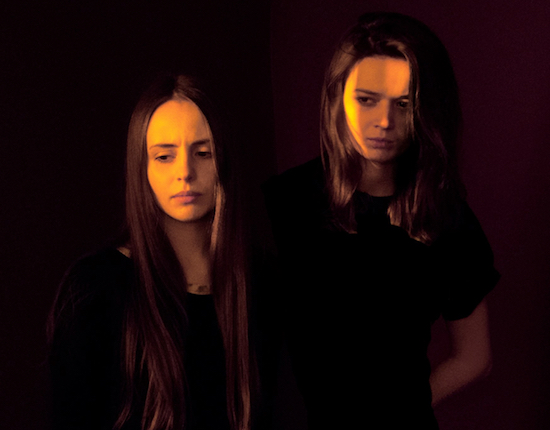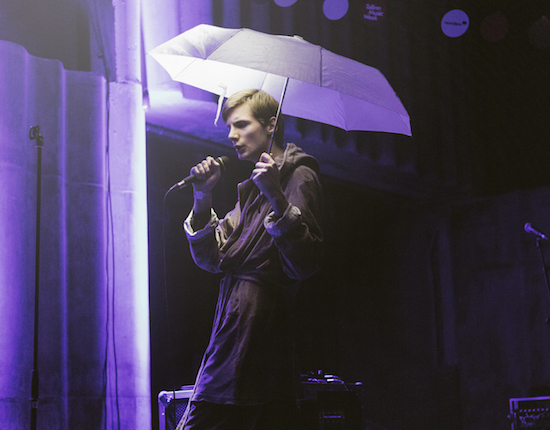Mart Avi
Tallinn Music Week is an energy centre, mentally, spiritually and physically. Aside from the ridiculous amount of good music, the often brilliant panels, informal talks and lectures ranged from how to use big data for sustainable development, humanity’s new role as the gatekeepers of AI, cities as key agents for change, future-proofing the music industry and scally Estonian kids rapping about doing the cleaning. All energy-giving. And surely – to paraphrase President Kersti Kaljulaid who gave the opening address – all elements of “looking at the world with love”.
Tallinn Music Week allows various forms of expression to blossom, whether on the city festival (pop-up events around the capital), the conference, the festival proper or at unofficial happenings. This is a Very Good Thing. Now in its tenth year, there’s still a freshness about Tallinn Music Week that is very challenging. Energy was found in hotel lobbies in front of bemused Nato soldiers where Evestus smashed out his swaggering, high-gloss industrial rock, or in the National Library where Polish cellist Resina played a bravura gig full of clever delineations of tone and texture, stopping bookworms in their tracks. Energy was spread simultaneously. You could wallow in swish events in grand historical buildings such as Vene Kultuurikeskus – witness here Kristjan Järvi’s mammoth musical journey through Estonia that officially opened the festival, a brilliant “Trans-Eesti-Express” if ever there was one. You could visit the two-day Crypto Market (more of that later), or the (unofficial) experimental tape night (with soup and dry ice thrown in) at the EKKM with the brilliant talents of Ratkiller and Maria Horn.
Tallinn’s energy also spreads to the border city of Narva (96% Russian-speaking), host to a new festival this September. The Narva festival is part of the Herculean efforts of the Estonians to reach out culturally and socially to their eastward neighbour: many here are very aware of the role music (and the Tallinn festival in particular) plays in these strained times. Only one act – Mirrored Lips – suffered through visa issues, and that was mainly to do with complications with the UK consulate. Let’s hope the wave of talent coming out of Russia only suffers through intermittent bureaucratic complications and never on the altar of realpolitik. I’ll say this for Mirrored Lips, they sounded like they’d be great live. As it was we could only guess at the power of the drummer whose skin pounding sadly sounded like a mic dropped into a fast running stream. Then the video link crashed and froze: a valiant attempt crippled by bureaucracy and cut short by technology.
The way many Russian acts move on stage is striking, and it suggests something novel. Russia has long produced modern dancers and dance masters, from Diaghilev and Nijinsky to Evgeny Panfilov and Tatyana Baganova. Without claiming that there is in any direct link, the Russian popsters here flirt with a mannered but incredibly entertaining body art that nods to the interface between art and socio-technological change. This kind of expressionism takes various guises. One was seen at MENT (and Tallinn the year previous) with the incredible Shortparis whose manic gyrations truly took their music somewhere else. Here in Tallinn we witness the multi-talented InTurist and Kate NV, who both take pains to express themselves through their music, or rather, look to be the dancer and the player all at the same time. InTurist is Jenya Gorbunov, the guitarist in ГШ / Glintshake. His music – a choppy, very moreish mash-up of new wave synth beats and and Maurice Deebank guitar runs – is given extra aplomb by his manic dancing, a young David Byrne trying to groove to The Rite Of Spring. His ГШ / Glintshake bandmate Kate Shilonosova makes beautiful and very eclectic pop experiments that draw on the likes of Ryuichi Sakamoto, Michael Rother and minimalist electronic composition. And her goofy dances and facial expressions (part cheerleader, part raver, part delighted kid stealing trainers) reflect her sheer joy in playing and somehow hint at a desire to make a more complete, audio-physical package. Both performers are as effervescent as a spring morning.

Tema Kresta
Performance of a very different, static kind comes from Alexei Taruts, whose wall of “non-beat / new-beat noise” is spectacular in its minimalism. Long thought poems presented as snippets of text interspersed between walls of sound nodded to a heap of things: Durutti Column, no wave, new beat, sound art and EDM all came to mind at various points. The crowd (by this late hour mostly Russian) stood rapt, some with eyes closed, raised arms in supplication, evidently moved on a primal level.
One of the opening speeches at the rich and diverse conference was by sports biologist Kristjan Port, whose last slide conjured up a robot, to remind us (if we needed reminding) that AI technology is the new helpmeet of mankind. But surely this path has already been prepared in modern pop music. A new form of digital-musical interaction has been hiding in plain sight this last decade. Fermenting in bedrooms and common rooms, feeding off questions of gender identity and social righteousness, fuelled by Skype, WhatsApp and YouTube, Gilded Youth’s latest creative outlet has somehow channelled a cabaret that harks back (however unintentionally) to the seediness of 1920s Berlin or Budapest. This online music has little to do with the laptop-driven anonymity of deejays or neo-classical sound nerds. It demands more; it is pixelated angst writ large. The brilliant Crypto Market that ran for two nights at the notorious Kuku Klubi (a sort of Colony Rooms for drunken Estonian artists) highlighted the scattergun nature of this trend. There are too many acts to mention, but some spotlight should be given to a scholarly duo from St Petersburg known as Tema Kresta. Their motto, I am reliably informed, is “never miss a lecture”. Their demeanour (monkish) and deadpan synched vocals delivering tracts (again I am reliably informed) about the rigours of anal sex without lubrication and ‘scripture socialism’, could have put some off. Brilliant light relief was, however, given by the video backdrop (what looked like a film of a sex doll conference, Disney cartoons, random Google maps of car wash centres) which gave a punch drunk yet mesmerised audience something to cling onto.
Wearing a buttock-bearing mankini whilst shagging what looked like a small cake as a prelude to singing paeans to the squareness of Estonia takes some doing, but Florian Wahl did it. At turns making colourful and bitchy pop or howl-at-the-moon soliloquies that wouldn’t be out of place in Köln’s Alte Markt, Wahl’s restless persona and patter shocked some but charmed the majority. Later, Maria Minerva somehow found a way to wrap up the rigour of Holly Herndon and the weirdness of early Plus Instruments in a sugar-coated, ever-so-slightly seedy pop chanson. Then there is the brilliantly itchy show kicked up by Regret, whose righteous fem-punk declamations were deconstructed courtesy of atom-splitting atonal explosions of noise or drenched in the stickiest sleaze.
Then there’s Mart Avi. What should we do with Mart Avi? Call him a pop genius? His art is certainly weird pop of the highest order, and he has musical nous in spades. He plays around with his persona, at times channelling the suaveness of Peter Cook in his imperial phase, at others Billy Mackenzie (it’s the voice), but Avi somehow goes somewhere else; his very otherness suggests he is a character in a Hayao Miyazaki film or a zombie from Call Of Duty. Even when his laptop connection fails, he sits in contemplation, smoking an e-fag or blowing on some miniature hunting horn. At other moments he pointed to the screen with a snake charmer’s pungi. Although we didn’t get his great cover of ‘Igatsus’ (‘Yearning’) by Estonian popsters Apelsin, Avi threw his new fanzine into the crowd, crammed with facts about NBA and binary codes. Premeditated, and totally cool. It’ll certainly do for now.


